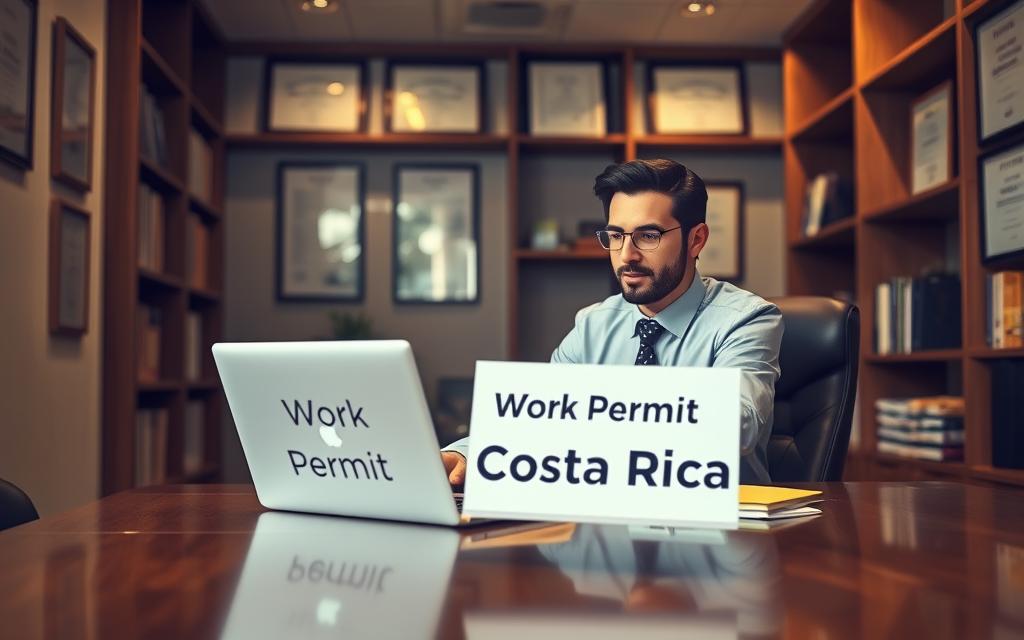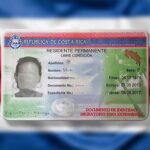Costa Rica Work Permit vs Residency: Know the Differences

Costa Rica has become a magnet for individuals and families seeking a better quality of life, with its rich biodiversity, high standard of living, and welcoming environment making it an attractive destination.
As a country known for its natural beauty and mild climate, Costa Rica is not just a top tourist destination but also a sought-after place to live and work, offering a unique blend of modern conveniences and a relaxed, tropical lifestyle.
Understanding the legal requirements for living and working in this tropical paradise is essential, and the choice between a work permit and residency depends on individual circumstances, including long-term goals and employment status.
We will explore the differences between these two options to help you make an informed decision about your legal status in Costa Rica.
Understanding Legal Status Options in Costa Rica
Foreign nationals looking to work or live in Costa Rica must understand the legal status options available to them, including work permits and various residency categories.
What is a Work Permit in Costa Rica?
A work permit in Costa Rica is a legal authorization that allows foreign nationals to be employed by Costa Rican companies for a specific period. To obtain a work permit, applicants typically need employer sponsorship and must demonstrate that the position cannot be filled by a local citizen.
Work permits are usually tied to a specific employer and position, limiting the holder's flexibility to change jobs or employers.
What is Residency in Costa Rica?
Residency in Costa Rica is a legal status that enables foreigners to live in the country for extended periods. Different categories of residency offer various rights and privileges, including potential work rights, depending on the category granted.
Unlike work permits, residency options may provide more stability and flexibility, with some categories allowing holders to work freely or start their own businesses.
Key Differences at a Glance
The primary differences between work permits and residency include duration of stay, renewal requirements, employment flexibility, and pathways to permanent status. Work permits are generally more limited in scope and duration compared to residency options.
Understanding these differences is crucial for making an informed decision about which legal status to pursue based on your specific circumstances.
| Category | Work Permit | Residency |
|---|---|---|
| Duration of Stay | Limited to the employment period | Can be temporary or permanent |
| Employment Flexibility | Tied to a specific employer and position | Varies by residency category; some allow free employment |
| Pathway to Permanent Status | Limited | Available through certain residency categories |
Types of Work Permits in Costa Rica
The Costa Rican government has established multiple categories of work permits to accommodate various professional needs. This diversity allows foreign nationals to find the most appropriate visa for their specific situation, ensuring compliance with local laws and regulations.
Temporary Work Permits
Temporary work permits are typically valid for one to two years and are tied to specific employers. These permits require employer sponsorship and are designed for foreign nationals who have secured employment with Costa Rican companies for a limited period. They are ideal for projects or contracts that have a defined duration.
Special Category Work Permits
Special category work permits cater to specific professions and situations, including artists, athletes, academics, technical specialists, and seasonal workers. This "special category" Costa Rica work visa includes individuals who have secured a job in the arts and entertainment industry, professional athletes, those relocating within a company, self-employed or freelance individuals, and those in academia or internship positions. For more detailed information on legal services related to these categories, you can consult with experts like those at Jaros CR.
Work Permits for Specific Industries
Industry-specific work permits exist for sectors where Costa Rica has identified skills shortages, such as technology, healthcare, and specialized construction. These permits are designed to attract foreign talent to fill gaps in the local workforce, promoting economic growth and development.
Understanding which category of work permit applies to your situation is crucial for a successful application and legal employment in Costa Rica. Each type of work permit has different application processes, validity periods, and renewal requirements. By choosing the correct category, individuals can ensure they are well on their way to a smooth transition into the Costa Rican workforce.
Types of Residency Options in Costa Rica
Whether you're a retiree, investor, or remote worker, Costa Rica has a residency option tailored to your situation. The country offers a variety of residency categories to suit different needs and circumstances, making it an attractive destination for foreigners.
Temporary Residency Categories
Costa Rica's temporary residency categories serve as the most common entry points for foreigners. These categories are designed to cater to various lifestyles and financial situations.
Rentista Residency
The Rentista residency is designed for individuals with stable, passive income of at least $2,500 monthly. This category is suitable for freelancers, self-employed professionals, and those with investment income. To apply, applicants must demonstrate a guaranteed non-salary income and meet specific documentation requirements.
Pensionado (Retiree) Residency
Pensionado residency caters to retirees with a guaranteed monthly pension of at least $1,000. This category offers benefits specifically designed for those looking to spend their retirement years in Costa Rica, including discounts on various services and goods.
Inversionista (Investor) Residency
Inversionista residency requires a minimum investment of $150,000 in Costa Rican real estate, businesses, or certain government-approved projects. This category is ideal for those who wish to contribute to the development of the country through business investment.
Permanent Residency
Permanent residency offers the most stability and rights, including unrestricted work authorization. It is typically available after maintaining temporary residency for three years. Permanent residents can live and work in Costa Rica as freely as Costa Rican citizens, enjoying a high level of integration into the local community.
The Digital Nomad Visa
The Digital Nomad Visa is Costa Rica's newest residency option, designed specifically for remote workers employed by companies outside Costa Rica. To qualify, applicants must meet specific income requirements and demonstrate their remote work status. This visa offers a unique opportunity for digital nomads to experience Costa Rica's rich culture and natural beauty while maintaining their professional careers.
For more detailed information on obtaining residency in Costa Rica, you can visit https://www.jaroscr.com/how-to-get-residency-in-costa-rica/. Each residency category has different financial requirements, application processes, and benefits. Understanding these differences is crucial to identifying which option best suits your situation.
Work Permit vs Residency in Costa Rica: Requirements Comparison
To navigate the complexities of living and working in Costa Rica, it's essential to compare the requirements for work permits and residency. Both pathways have distinct requirements that cater to different needs and circumstances.
Documentation Requirements
The documentation needed for work permits and residency applications in Costa Rica differs significantly. For a work permit, applicants must provide a range of documents, including a completed application form, a valid passport, birth and marriage certificates (if applicable), and various employer-related documents such as proof of company registration and an employer statement. In contrast, residency applications focus more on personal financial documentation and proof of financial stability.
Both paths, however, require standard documents like a notarized photocopy of every page of your valid passport, original birth certificate, and police clearance certificate. The specific documents required can vary based on the type of visa or residency category you're applying for.
Financial Requirements
Financial requirements for work permits and residency in Costa Rica vary widely. For work permits, the focus is on the employer's financial stability and the appropriateness of the salary level offered to the foreign employee. In contrast, residency options have specific minimum income or investment thresholds, which depend on the category of residency. For instance, applicants for certain residency categories must demonstrate a minimum monthly income from a pension or other stable sources.
Sponsorship and Employment Requirements
Sponsorship is a key differentiator between work permits and residency. Work permits require employer sponsorship, where the employer must justify the hiring of a foreigner and demonstrate that the individual meets specific requirements. Most residency options, however, do not require sponsorship; instead, they focus on the applicant's financial self-sufficiency.
Length of Stay Requirements
The length of stay allowed under work permits and residency also differs significantly. Work permits are typically tied to the duration of an employment contract, which can vary. Residency options, on the other hand, offer more stable, longer-term status, with some categories leading to permanent residency.
Understanding these differences is crucial for determining which path is more accessible based on your personal circumstances and long-term goals in Costa Rica. Whether you're looking to work, invest, or retire in Costa Rica, choosing the right visa or residency category can make a significant difference in your experience.
Application Process: Work Permit vs Residency
Understanding the differences between work permit and residency application processes is crucial for a smooth transition to Costa Rica. Both processes involve several steps, but they have distinct requirements and timelines.
Work Permit Application Steps
To apply for a Costa Rica work permit, the process typically begins with the employer sponsoring the employee. This involves several key steps:
The employer must demonstrate that the position cannot be filled by a Costa Rican citizen, which adds a layer of complexity to the application.
The application process involves submitting necessary documentation, including a provisional visa application from a Costa Rican consulate, registration with the Ministerio Seguridad Pública, and finally, applying for a work permit from the Dirección General de Migración y Extranjería.
Residency Application Steps
For residency, the application process focuses on proving personal financial stability, particularly for categories like Rentista or Pensionado.
Applicants must gather and authenticate documents, which may include financial statements, police records, and health insurance documents.
The process involves submitting these documents to the relevant authorities and waiting for the application to be processed.
Processing Times and Expectations
The processing time for work permits in Costa Rica can vary significantly, typically taking between three to eight months.
Residency applications, on the other hand, can take longer, often requiring six to twelve months, depending on the category and current processing backlogs.
It's essential to plan ahead and understand these timelines to manage expectations and make necessary arrangements.
For more information on whether residency in Costa Rica is worth considering, you can visit our detailed guide on the topic: Is Residency in Costa Rica Worth It
Benefits and Limitations of Each Option
When considering a move to Costa Rica, understanding the benefits and limitations of work permits versus residency options is crucial for making an informed decision. Both pathways offer unique advantages and come with specific restrictions that can significantly impact your quality of life, career opportunities, and long-term plans in Costa Rica.
Work Permit Advantages and Restrictions
Work permits in Costa Rica provide a clear path to legal employment, which is a significant advantage for those looking to work for a specific employer. However, they come with considerable restrictions. For instance, work permits are typically tied to a specific employer, have limited durations, and involve complex renewal processes. This means that changing jobs or extending your stay can be challenging and bureaucratic.
Another significant limitation of work permits is that they do not provide a direct path to permanent status in Costa Rica. Additionally, they do not automatically extend rights to family members, which can be a significant drawback for those looking to relocate with their families.
Residency Benefits and Limitations
Residency options, on the other hand, generally offer more stability and longer durations of stay. Certain residency categories, such as permanent residency, allow individuals to work for any employer or run a business without the need for additional permits. This flexibility is a significant advantage for those looking to establish a long-term presence in Costa Rica.
However, different residency categories come with varying limitations regarding work rights. For example, retiree (pensionado) or annuity holder (rentista) residents are not allowed to work in Costa Rica but can earn money through business ownership. In contrast, investor (inversionista) residents can both own and profit from a business and are legally entitled to work. Telecommuting residents, under the digital nomad visa, can live in Costa Rica and earn income by working remotely for companies based outside the country.
For more information on how long you can stay outside Costa Rica with residency, you can visit this page to learn more about the specifics of residency rules.
Working Rights Comparison
Permanent residents in Costa Rica can live and work as freely as Costa Rican citizens, enjoying unrestricted work rights. Unconditional temporary residents also have similar employment benefits, meaning they do not need a secondary work permit to work. This is a significant advantage over work permits, which are restrictive in terms of employment.
In conclusion, while both work permits and residency options have their benefits and limitations, the choice between them depends on your specific circumstances, career goals, and long-term plans in Costa Rica. Understanding these differences is key to making an informed decision that aligns with your needs and aspirations.
Costs and Timeframes

When considering a move to Costa Rica, understanding the financial implications of obtaining a work permit or residency is crucial. The costs associated with these legal statuses can significantly impact your decision-making process and long-term budgeting.
Let's break down the complete cost structure for both work permits and various residency options in Costa Rica, helping you budget appropriately for your preferred legal status. The expenses involved in obtaining a work permit or residency can vary widely depending on the type of visa or permit you are applying for.
Choosing the Right Option for Your Situation

As you plan your move to Costa Rica, navigating the different legal status options can be complex, but we're here to guide you through it. The decision between a work permit and residency depends on various factors, including your profession, financial situation, and long-term goals. We will provide you with personalized guidance to help you make an informed decision.
Best Options for Digital Nomads and Remote Workers
For digital nomads and remote workers, Costa Rica's digital nomad visa is often the most advantageous option. This visa allows you to live in Costa Rica while working for a foreign employer, with benefits including a renewable one-year validity and no income tax in Costa Rica. To qualify, applicants must show a minimum monthly income of $3,000 USD, or $4,000 USD for families.
The digital nomad visa offers a fast-tracked application process, making it an attractive choice for those who want to relocate quickly. Additionally, it provides the flexibility to work from anywhere in Costa Rica, making it ideal for remote workers who value freedom and lifestyle.
Recommendations for Investors and Entrepreneurs
Investors and entrepreneurs looking to start or expand a business in Costa Rica can benefit from the investor visa. This visa requires a minimum investment of $150,000 USD in real estate, a Costa Rican business, or tourism projects. It not only offers a pathway to permanent residency but also allows you to contribute to the Costa Rican economy.
The investor visa is particularly appealing because it provides business ownership rights and the opportunity to engage actively in the local economy. For entrepreneurs, this can be a strategic move to establish a presence in Central America.
Solutions for Employees of Costa Rican Companies
For individuals employed or seeking employment with Costa Rican companies, a work permit is often the most straightforward option. However, there are scenarios where pursuing residency might be more beneficial, especially if you plan to stay long-term or start your own business.
We recommend evaluating your employment situation and long-term goals to determine whether a work permit or residency is more suitable. In some cases, starting with a work permit and transitioning to residency later can be a viable strategy.
Pathways for Retirees and Passive Income Earners
Retirees and passive income earners have specific residency options designed for their situations. The Pensionado and Rentista residencies offer significant advantages, including benefits tailored to their needs. These options are often more favorable than work permits for individuals with a stable income from outside Costa Rica.
Understanding the requirements and benefits of these residency categories is crucial for retirees and passive income earners. We can help you navigate these options and choose the one that best aligns with your financial situation and lifestyle goals.
Conclusion
Having examined the various aspects of work permits and residency options in Costa Rica, we can now distill the key takeaways to guide your decision-making process.
We've explored the key differences between work permits and residency options in Costa Rica, highlighting how each path offers distinct advantages and limitations depending on your specific situation.
Understanding these differences is crucial for making an informed decision that aligns with your long-term goals, whether you're seeking employment with a Costa Rican company, working remotely, investing in a business, or retiring.
The application processes, requirements, costs, and timeframes vary significantly between work permits and different residency categories, with important implications for planning your move to Costa Rica.
Work permits offer a straightforward path to legal employment but come with limitations regarding duration and employer flexibility, while residency options provide more stability but have more stringent financial requirements.
Your choice should be guided by factors including your employment situation, financial resources, desired length of stay, and long-term intentions regarding permanent settlement in Costa Rica.
For personalized assistance with your work permit or residency application, we recommend consulting with immigration experts to navigate the complexities of Costa Rican immigration law and ensure your application has the highest chance of success.
You can contact us at info@jaroscr.com or call +(506) 71828969 for more information.
Visit our website at https://www.jaroscr.com for more resources and information about living and working legally in Costa Rica.


